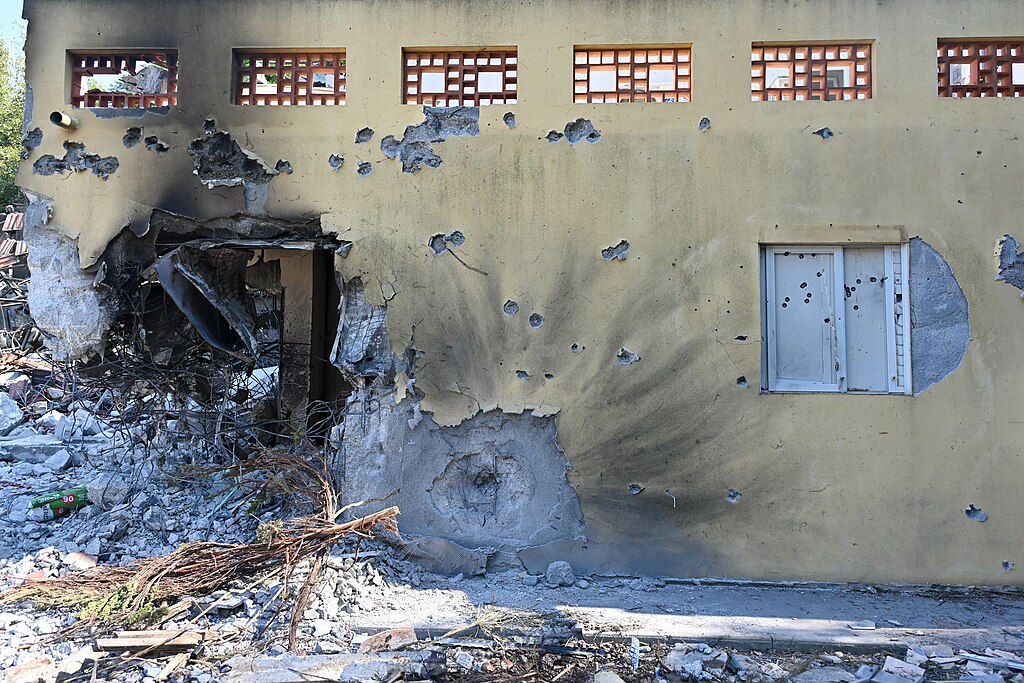Israel Expands Evacuations and Intensifies Strikes Amid Escalating Hezbollah Conflict
Israel ordered additional evacuations and launched fresh attacks on northern Lebanon on Saturday, as tensions with Hezbollah, the Iran-backed militant group, continued to rise. The escalating violence has left one U.N. peacekeeper injured, marking the third such incident in recent days.
Fatalities and Casualties in Lebanon
According to Lebanon’s health ministry, Israeli airstrikes killed at least 15 people and wounded 37 in multiple regions, including the town of Deir Billa in northern Lebanon, an area previously untouched by the conflict.
The Israeli military reported that Hezbollah fired nearly 320 rockets and projectiles from Lebanon into Israeli territory, leading Israel to declare public areas in northern towns as restricted zones.
Mass Evacuations in Southern Lebanon
In a significant move, the Israeli Defense Forces (IDF) instructed residents of 23 southern Lebanese villages to evacuate to regions north of the Awali River. These areas have been frequent targets of Israeli strikes in recent weeks, leaving many villages nearly deserted.
The Israeli military justified the evacuations, citing Hezbollah’s increased use of civilian areas to hide weapons and plan attacks. Hezbollah, however, has denied these claims.
U.S. Response and Concerns Over U.N. Peacekeepers
U.S. Defense Secretary Lloyd Austin, in a conversation with Israel's Defense Minister Yoav Gallant, expressed concern over reports that Israeli forces had targeted U.N. peacekeeping positions in Lebanon. He urged Israel to prioritize the safety of U.N. peacekeepers and the Lebanese military. Austin also emphasized the need for Israel to shift from military operations to a diplomatic solution as soon as possible.
Destruction of Lebanese Hospitals and Infrastructure
The Lebanese health ministry reported that Israeli strikes in Baalbek and the Bekaa Valley damaged five hospitals. Although the IDF did not comment on these claims, humanitarian access to healthcare in Lebanon has been severely disrupted by the ongoing conflict. Medecins Sans Frontieres (MSF) was forced to close clinics in both southern Beirut and northern regions due to heavy bombardment.
Hezbollah's Retaliation and Israel's Counterattacks
Hezbollah fighters have retaliated by launching rocket attacks deeper into Israeli territory, reportedly targeting areas near Tel Aviv with drones. Israel confirmed the interception of two drones, with no casualties reported.
Meanwhile, Israeli forces have hit over 200 Hezbollah targets across Lebanon, destroying weapons storage sites and eliminating key militants. Despite Hezbollah's denial, Israeli authorities insist the militant group has used ambulances to transport fighters and weapons.
Rising Death Toll and Displacement
The ongoing Israel-Hezbollah conflict has triggered mass displacement, with the Lebanese government reporting that over 1.2 million residents have fled their homes since the hostilities began on September 23. The United Nations has confirmed that this figure surpasses the number of displaced people during the 2006 Israel-Hezbollah war, which forced around 1 million to flee.
As of Saturday, the Lebanese Health Ministry announced that the death toll had reached 2,255 since the conflict's escalation.
Conclusion
With both sides intensifying their military actions, the conflict between Israel and Hezbollah shows no signs of abating. As international calls for a diplomatic solution grow louder, the humanitarian crisis in Lebanon worsens, with no clear resolution in sight.



 U.S.-India Trade Framework Signals Major Shift in Tariffs, Energy, and Supply Chains
U.S.-India Trade Framework Signals Major Shift in Tariffs, Energy, and Supply Chains  South Korea’s Weak Won Struggles as Retail Investors Pour Money Into U.S. Stocks
South Korea’s Weak Won Struggles as Retail Investors Pour Money Into U.S. Stocks  Japanese Pharmaceutical Stocks Slide as TrumpRx.gov Launch Sparks Market Concerns
Japanese Pharmaceutical Stocks Slide as TrumpRx.gov Launch Sparks Market Concerns  Global Markets Slide as AI, Crypto, and Precious Metals Face Heightened Volatility
Global Markets Slide as AI, Crypto, and Precious Metals Face Heightened Volatility  U.S. Stock Futures Slide as Tech Rout Deepens on Amazon Capex Shock
U.S. Stock Futures Slide as Tech Rout Deepens on Amazon Capex Shock  China Extends Gold Buying Streak as Reserves Surge Despite Volatile Prices
China Extends Gold Buying Streak as Reserves Surge Despite Volatile Prices  Thailand Inflation Remains Negative for 10th Straight Month in January
Thailand Inflation Remains Negative for 10th Straight Month in January  Dollar Near Two-Week High as Stock Rout, AI Concerns and Global Events Drive Market Volatility
Dollar Near Two-Week High as Stock Rout, AI Concerns and Global Events Drive Market Volatility  Trump’s Inflation Claims Clash With Voters’ Cost-of-Living Reality
Trump’s Inflation Claims Clash With Voters’ Cost-of-Living Reality  Trump Endorses Japan’s Sanae Takaichi Ahead of Crucial Election Amid Market and China Tensions
Trump Endorses Japan’s Sanae Takaichi Ahead of Crucial Election Amid Market and China Tensions  Singapore Budget 2026 Set for Fiscal Prudence as Growth Remains Resilient
Singapore Budget 2026 Set for Fiscal Prudence as Growth Remains Resilient  South Korea Assures U.S. on Trade Deal Commitments Amid Tariff Concerns
South Korea Assures U.S. on Trade Deal Commitments Amid Tariff Concerns  Silver Prices Plunge in Asian Trade as Dollar Strength Triggers Fresh Precious Metals Sell-Off
Silver Prices Plunge in Asian Trade as Dollar Strength Triggers Fresh Precious Metals Sell-Off  Gold and Silver Prices Slide as Dollar Strength and Easing Tensions Weigh on Metals
Gold and Silver Prices Slide as Dollar Strength and Easing Tensions Weigh on Metals  Trump Signs Executive Order Threatening 25% Tariffs on Countries Trading With Iran
Trump Signs Executive Order Threatening 25% Tariffs on Countries Trading With Iran  Asian Stocks Slip as Tech Rout Deepens, Japan Steadies Ahead of Election
Asian Stocks Slip as Tech Rout Deepens, Japan Steadies Ahead of Election  Dow Hits 50,000 as U.S. Stocks Stage Strong Rebound Amid AI Volatility
Dow Hits 50,000 as U.S. Stocks Stage Strong Rebound Amid AI Volatility 































